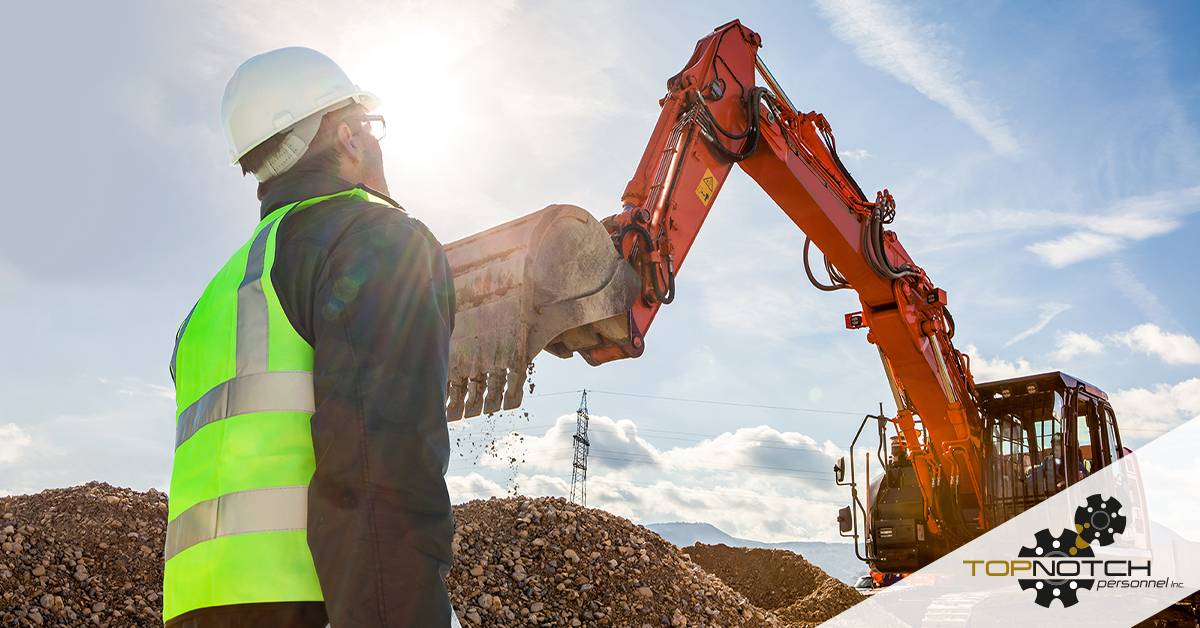Operating heavy machinery comes with a handful of safety concerns that you need to consider. Sticking to the policies and procedures your workplace has set forth is always a good idea, but there are several other tips you may want to think about using when working in an industrial setting. All light industrial workers need to adhere to the following 10 when they are operating heavy machinery.
1. Always Wear Your Protective Gear
If you have never been involved in a workplace accident protective gear may seem cumbersome. Wearing this gear plays a huge role in your safety on the job though. This includes hard hats, gloves, fall gear, and other gear required by your employer. Remember, it is always better to be proactive than reactive when it comes to workplace safety.
2. Wear Your Safety Belt
Wearing your seat belt when operating machines is extremely important. If a machine rolls over for any reason, wearing your seat belt could save your life.
3. Be Careful When Mounting a Construction Vehicle
The most common work injuries occur when mounting and unmounting heavy machinery. Because of this, it is important that you wear gloves and boots when boarding a piece of machinery on the job. Additionally, if conditions are muddy or wet it is key to exercise more caution when using these machines.
4. Get the Proper Training
Before you begin working with any machine on the job, be sure you have the proper training to maintain your own safety. Someone who is undertrained or not trained entirely can pose a threat to themselves and others on the job site. If the equipment is being rented, detail what you will be using it for to the company you are renting it from. Chances are, they will have a lot of helpful safety tips to share with you as well.
5. Don’t Exceed the Maximum Payload
Every piece of heavy machinery you work with comes with a manual from the manufacturer. Within this information, they have included details about the max payload of the vehicle. It is important to never exceed this amount. Doing so can lead to malfunctions and could even cause the machine to roll over.
6. Check for Overhead and Subterranean Obstructions
There are a number of obstructions that can pose a threat to your safety when operating heavy machinery. Be wary of hard-to-see power lines, overhead obstructions, and underground utility lines. Perform site research before starting a job to ensure it is safe to work.
7. Make Sure the Operation Area is Clear of People
For some reason, people enjoy watching machines at work. However, experienced workers know that crowding around heavy machinery poses a safety risk. Anyone operating machinery from the ground should stand clear of the machine. People directly operating the machine should use horns or communicate with other individuals on the ground to stand clear to avoid injury.
8. Be Aware When Backing a Large Piece of Machinery
It is extremely important to be aware of your surroundings when moving a piece of heavy machinery. Doing so can pose some potential dangers and those risks increase exponentially when you are moving backward. When you are backing a piece of heavy machinery it is crucial to make sure there are no people or obstacles behind you. Do this by checking and moving the mirrors for good visibility. In some cases, you may have to get out of the vehicle altogether and check your surroundings.
9. Know Where Your Blind Spots Are
Every piece of machinery has blind spots that need to be double-checked before moving. To check these areas, most of the time the operator will need to leave the vehicle and visually check the area for obstructions. This will help you reduce the risk of workplace accidents and increase your overall safety on the job.
10. Communicate
As with any job, it is important to communicate with others on your job site. Having a good system for communication can help you avoid injuries on the job altogether. You can use two-way radios, walkie-talkies, or any other communication system that works to help ensure everyone stays safe.
Contact Our Recruiters Today
If you are looking for light industrial work, Top Notch Personnel specializes in placing employees in these positions. Contact us to see what jobs are available and how we can assist you in your search.


